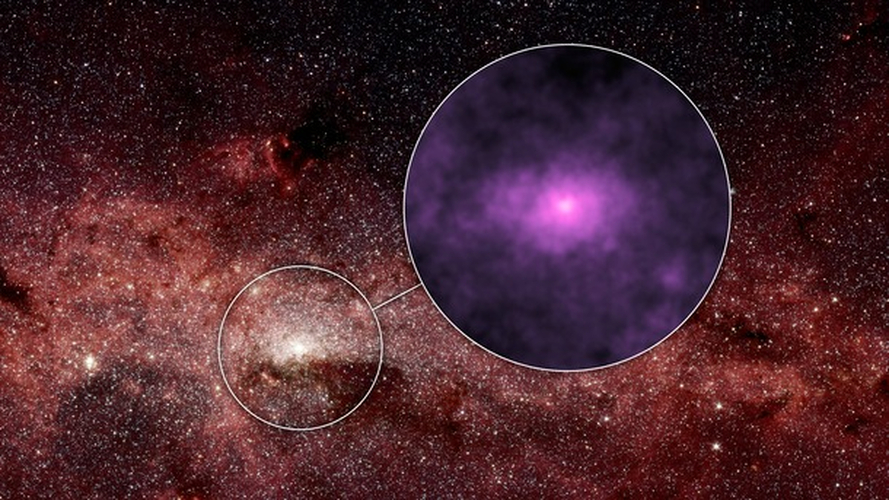
 Credit: NuSTAR; Spitzer; NASA
Credit: NuSTAR; Spitzer; NASA
Brighter than a Black Hole
Monster black holes, millions or billions of time more massive than our Sun, haunt the centers of many if not most galaxies. How they got there is largely a mystery, but these relatively tiny objects can have enormous effect on the structure of their home galaxies, and on the regions beyond their galaxies too. Some of these supermassive black holes have voracious appetites, swallowing enormous quantities of gas, dust, and stars, and producing high-energy emission and jets of particles and radiation that extend for hundreds of thousands of lightyears. But the monster black hole called Sgr A* which lies at the center of our own Milky Way is a picky eater, making it rather faint. Now the hard X-ray telescope NuSTAR has provided the first direct image of the region near Sgr A*. The image above is an infrared image of the Galactic center region obtained by the Spitzer Space Telescope, while the circular inset image shows the NuSTAR hard X-ray image, in the 20 to 40 kilo-electron volts energy range, of the region right around Sgr A*. NuSTAR did detect a bright point source of emission, but this source seems to be an X-ray emitting spinning neutron star, or pulsar, which outshines Sgr A* in the NuSTAR energy range. NuSTAR reveals a high-energy X-ray "haze" of unknown origin near the center of the Galaxy. This haze may indicate a population of otherwise hidden dead stars lurking near the monster black hole, Sgr A*.
Published: August 3, 2015
<
HEA Dictionary ● Archive
● Search HEAPOW
● Other Languages
● HEAPOW on Facebook
● Download all Images
● Education ● HEAD
>

Each week the HEASARC
brings you new, exciting and beautiful images from X-ray and Gamma ray
astronomy. Check back each week and be sure to check out the HEAPOW archive!
Page Author: Dr. Michael F. Corcoran
Last modified Tuesday, 27-Feb-2024 10:06:39 EST


